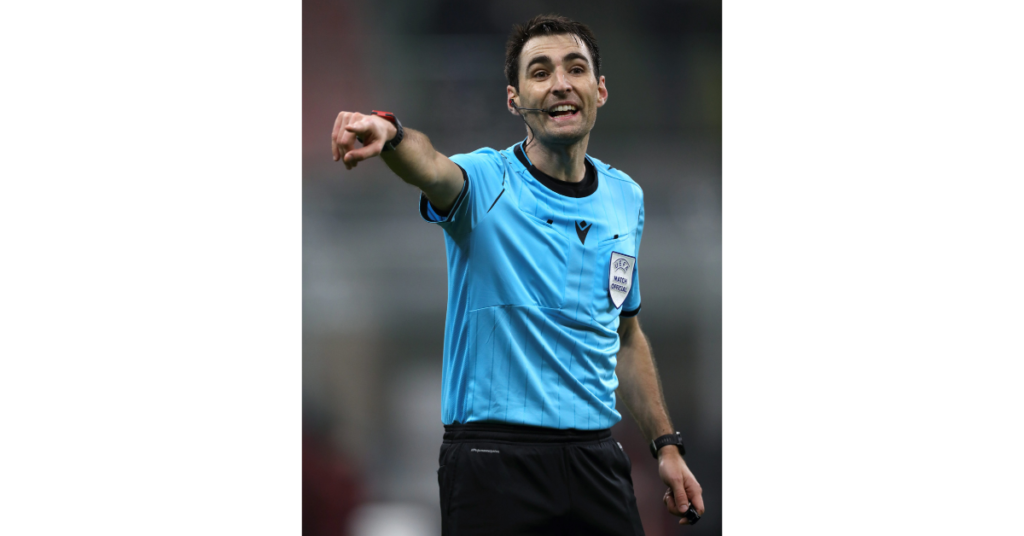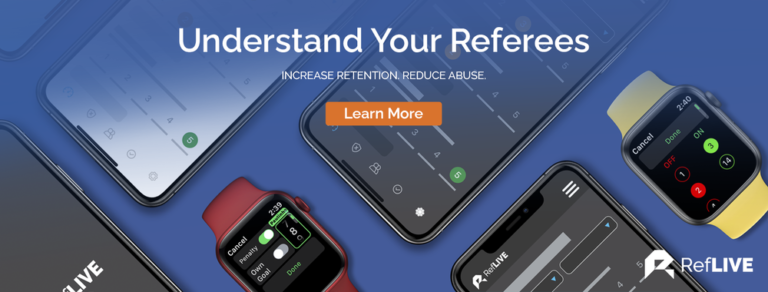It’s important to think carefully about how referees go back to officiating after an absence which will have had an impact upon confidence and competence. Some referees may struggle more than others with their confidence if pushed too hard too soon. You have the ability to impact how you feel about your return to officiating.
The Pandemic Effects Are Similar to Injury
In both situations a referee is unexpectedly ripped away from time in the middle. They are isolated from their colleagues, management and coaches. They can’t do the thing they love and aren’t sure when they will be able to do it again.
The pandemic and an injury both cause fear of the unknown. Officials are thinking to themselves, “What will my comeback look like?” or “How will I get back to where I was?” or “What if everyone else comes back stronger than me?”
For many officials, being a referee is a huge part of their identity. When they are unable to run the line or get out into the middle, it leaves an official questioning who they are. They have a lot of time on their hands and have to consider what other things interest them. They are mourning the fact that they can’t blow their whistle or raise their flag.
What Consumes The Thoughts of Referees?
When officials have been inactive, they may feel like they should be able to pick up where they left off. Our situation is similar to that of the swimmer who was the number 1 freestyle swimmer on the team, they may think that they’ll come back in at number 1. That might happen, or it may not. If said swimmer comes back and is not in the number 1 position their confidence could be lost. They need to return to their sport accepting that they may not be number 1. It is important that they focus on doing what they need to do to get back to where they were, the same is true for referees.
During this time some officials are building fitness which is making them stronger, increasing their stamina and their speed. Some referees are developing their mental game which will help them work smarter not harder. Other officials are doing one or the other, some both and some neither. This is will, undoubtedly, have an impact on how they come back to refereeing and upon their confidence level.
Training To Maintain Fitness Throughout the Pandemic
Most of my clients and colleagues have been training during the pandemic. Some coaches and associations have provided workouts online which has helped, but this has been limited. Many officials haven’t had access to the equipment they’re used to training with and on during this layoff.
Some referees have struggled to remain motivated. Why? They are used to being with colleagues and coaches. They miss the social aspect of being around people who’ve become their friends. Coaches and Managers have designed workouts so officials have had to be self-driven, and it’s been tough.
This kind of fitness training is important, but it’s not the same as referee specific training. It’s not working on identifying foul play or dealing with mass confrontations. There’s a huge difference between fitness and referee specific training. Fitness develops a good foundation, but it can’t replace being out on the pitch.
How to Support Yourself & Your Colleagues When Making Your Way Back
How would you begin to train again after an injury? Slowly and contentiously? The same idea is applicable when referees return to the middle once the pandemic is under control.
If you want to create an environment that builds the confidence of officials, then consider these concepts:
- Rediscover your love of refereeing again, and make your training fun.
- Start slow, and go back to the basics.
- Think about how you might develop your goals and identify what you want to work on.
- In the decision-making process always keep an eye on the bigger picture.
This is a great time to challenge and change the way you train and you can make use of the above concepts. Don’t be afraid to try something new and see what the impact is.
Summary
Some officials have flourished during the past few months of inactivity. The differing pace of life has allowed them time to relax and release the stressors they may have felt at work, in education or during the cycle of training for a game every few days. Because some referees have seen another side, they may not want to have the same schedule that they previously did. You have the ability to make a positive impact.
Make sure to understand that while training for fitness is good, it’s not the same as referee specific training. Remember that coming back after the pandemic requires a slow, considered comeback. Remember that some officials will struggle with their confidence if pushed too hard, too soon. Take responsibility for how you impact your own and your colleagues’ return to the line or the middle.
At The Third Team I work individually and in collaboration with different professionals where I have developed workshops associated with Resilience and Mental Toughness Development to help referees. The workshops are interactive, where referees are encouraged to open up and share their experiences to help each other.
Feel free to contact me if you’d like to know more about my workshops and how I could help you or your officials.
Best Wishes,

Nathan Sherratt
Referee Educator & Managing Director of The Third Team

Nathan Sherratt
Nathan Sherratt, Referee Educator, Resilience Trainer and Managing Director of The Third Team. A Mental Toughness Practitioner based in County Durham, North East England.


